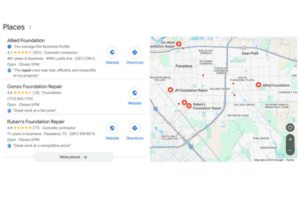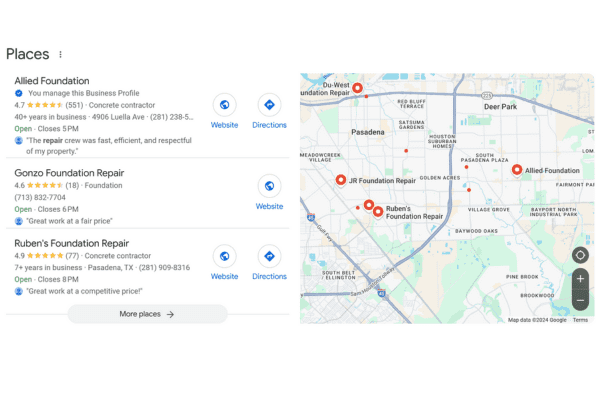Search engines have unique ways of ranking business websites based on their relevancy. In order to determine a web site’s true value to web searchers, the PageRank algorithm is one method that is used.
What is PageRank?
The PageRank system (despite what you may assume) is actually named after Larry Page, one of Google’s founders. The patent for the algorithm belongs to Stanford University, with exclusive rights to be utilized by Google. The algorithm intends to assist us in finding the most applicable information in our search. To do this, it scours and recognizes external links from other pages to determine how relevant your page’s content is.![What Is PageRank? [And Do External Links Affect Your SEO?]](https://b682448.smushcdn.com/682448/wp-content/uploads/2023/03/gui-2311260_1280.png?lossy=2&strip=1&webp=1)
![What Is PageRank? [And Do External Links Affect Your SEO?]](https://b682448.smushcdn.com/682448/wp-content/uploads/2023/03/gui-2311260_1280.png?lossy=2&strip=1&webp=1)
To get a better understanding of its purpose, let’s imagine you’ve just applied for a job. Your interviewer may suggest you supply references – or respected people who know you, how you work, and whether you’d be good at the position. These references inherently vouch for your ability to do well.
When a site links to yours, it’s essentially a reference for you. However, merely any random site linking doesn’t cut it. Much like in the job interview example, pulling just anyone off the street to vouch for you as a reference doesn’t hold the same weight as if it were the notable CEO of a company you worked for. Therefore, sites that are highly respected and reliable, like CNN or Time, would give your site a much more excellent “reference” if they linked to yours.
Do we want to reference other sites?
We’ve blatantly just stated that when another website references yours, it gives your own site leverage in the Google rankings – or link juice. Why, then, would we want to link to anyone else’s site? Why would we give their SEO a “free boost”?
Well, while your outbound links have no direct effect on PageRank scores, what we also mentioned is that Google is looking to provide the most relevant content to its searchers. Going back to the job interview example (last time, I promise) – If we are able to ask that same CEO about ten other people he can recommend, that CEO just became a valuable source of information. Despite the fact he’s supporting other people, we now know we can go to him for an information source – an unbiased one at that.
Linking to other sites puts your site on the radar as a valuable information source. Websites that have zero links to anyone else are simply a dead end on the algorithm map. You’re not offering anything else besides what you have on your page – there’s nowhere to go for any additional information except what you’re displaying in front of people. You’re telling them to take it or leave it and offering no extra resources outside of what you have to offer. It appears biased, and not very valuable to the searchers – and algorithms pick up on this.
By including outbound links, you’re also tying yourself to a niche, and helping Google and other search engines determine your relevance for future content searches.
What about nofollow links?
On the website building backend, you’re often given the option to create an external link, but make it “nofollow.” What this means is just how it sounds – you’re telling search engines not to follow the link when they’re mapping everything out.![What Is PageRank? [And Do External Links Affect Your SEO?]](https://b682448.smushcdn.com/682448/wp-content/uploads/2023/03/no-symbol-39767_1280-copy-1.png?lossy=2&strip=1&webp=1)
![What Is PageRank? [And Do External Links Affect Your SEO?]](https://b682448.smushcdn.com/682448/wp-content/uploads/2023/03/no-symbol-39767_1280-copy-1.png?lossy=2&strip=1&webp=1)
Nofollow was once strategically used in PageRank sculpting – a method highly frowned upon by Google. Sites would include external links but make them nofollow links, so all of the link juice stayed with them. Google recognized this and changed its algorithms, so it was no longer beneficial to do this.
Nofollow should only really be employed when the site you’re linking to is not necessarily a site you want to put your name behind. The site may, in fact, be beneficial and relevant to your visitor (which is why you’re linking to it in the first place), BUT, it’s not necessarily a trustworthy site, so you don’t want it to be associated with yours in any way. This is like the CEO saying “I know this person, and he can do the job, but I can’t vouch for how well” (I know, I know, I went back to the example again).
Above all, SEO can be a complicated area to master. Researching the different algorithms that search engines use, as well as how each search engine differs in how they treat certain aspects of your site can undoubtedly guide you to develop a successful SEO strategy.















